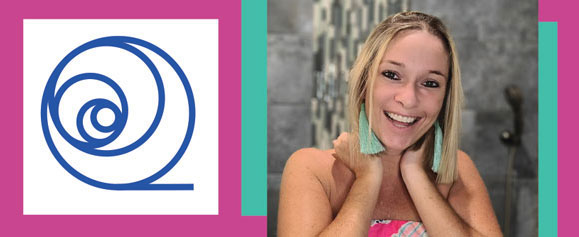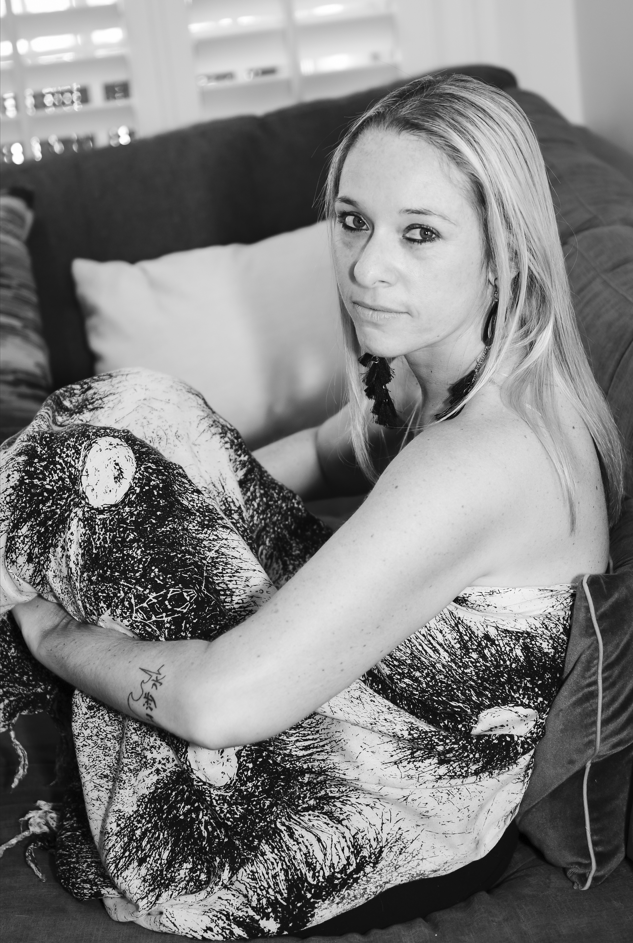
It’s a really interesting question. One would think that paralysis alone is enough make life challenging, but, ironically, not walking is the least of my challenges. I’m not quite sure if I’m genetically wired like this, but I always do find the positive side of most situations even in the darkest of circumstances. However, I’m not infallible and I do struggle just like so many with significant disabilities.
I often read incredible stories folks overcoming seemingly insurmountable challenges, but I don’t frequently read about the day-to-day life of what it takes to overcome these obstacles. I’m a realist. I always have been. While I make the most out of, well, quite awful situations at times that does not mean I don’t feel as though I am Sisyphus rolling up the boulder of the mountain only to have it come toppling down on my head.
I’m not sure if I’m a glutton for punishment, but I keep pushing the boulder up the hill with the belief that the universe has an odd way of working out even when you can’t see the trees beyond the forest at times. Keep in mind though, I don’t just wait for things to happen. I am constantly iterating different approaches in my own life each day.
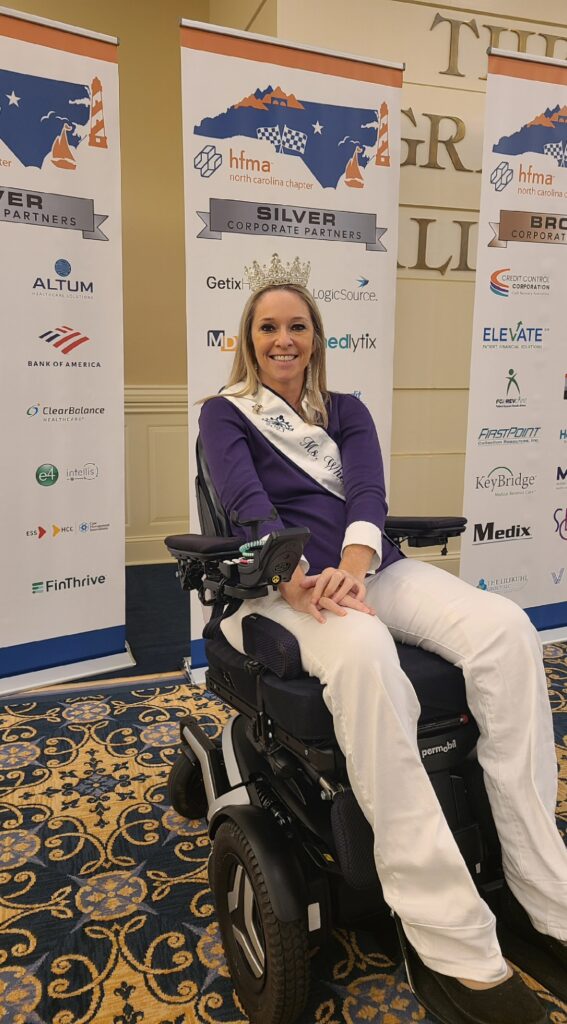
Back to Paralysis…
I can’t feel my legs or anything from the chest down really. I have paralyzed hands and limited upper body mobility. I make do with adaptive behavior the best I can with the right technological set up to be extremely self-sufficient in my life. My brain is working perfectly even though my body is not. So, the paralysis part of life is really not that challenging.
The secondary complications that accompany paralysis are much more complex, yet also not the most trying part of paralysis. I have osteoporosis about of an 85-year-old, have dealt with cervical cancer, multiple pulmonary embolism’s, multiple pressure sore surgeries, spinal surgeries from spinal cysts, the list goes on.
Pain is actually most mentally taxing aspect of what I deal with physically each day. Living with chronic nerve pain where you feel like your body is being burned inside alive on 80% of your body is complicated to say the least. There are many different ways to deal with pain from meditation to opioids to distraction. Personally, I probably work too much, but I did meditate and find small little mental techniques to keep me propelling forward.
I spent the first 7 years after my accident in 2010 in and out of hospitals and flying around the world. If you hear my story you might think to yourself “wow, what a survivor. What a trooper. I can’t believe she went through all that.” True, but when you are in medical hell and as Winston Churchill said “When you are in hell, just keep going…,” Your mind kind of transitions to military mode.

Your Maslow’s hierarchy of needs are essentially not being met so you don’t have much time to contemplate your feelings of the emotional baggage that comes with a traumatic accident. You are quite literally surviving from day-to-day and you can make an action plan to do so.
This is what I did. Every time I would overcome a medical victory another one would ensue and my family I would go back into strategic tactical mode for life-saving measures.
Leaving the Physical aside …
Now that we have established living from medical trauma to medical trauma is also the least of my daily challenges, I will dive into what takes the most amount of strength for me personally on a day with respect to not just trying to survive in this broken body, but to thrive beyond what society and others believe.
The mental. Not just the emotional mental challenges surrounding living a life that requires full-time care, but it’s really about People. The people around me.
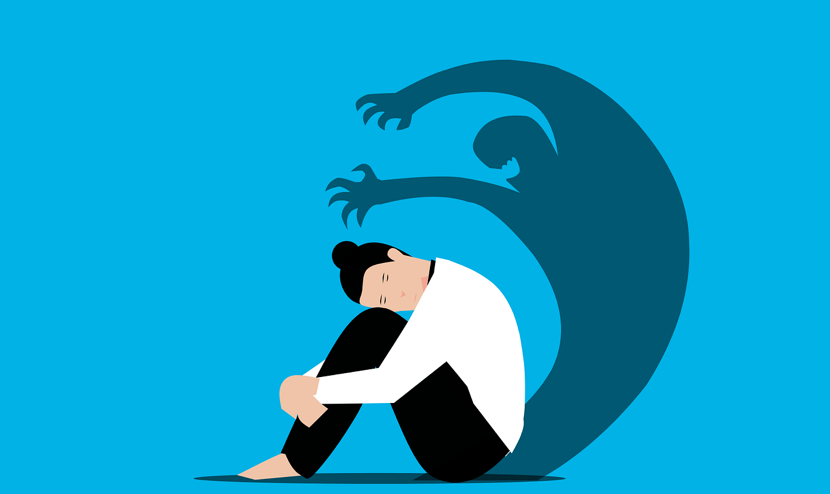
The People Conundrum
I love people. I love to build beautiful and meaningful relationships with them. I adore building connection and helping others. However, when it comes to my personal life and so many hundreds of others I’ve spoken to, who are reliant on 24/7 care to be fed, go to the bathroom, shower, get dressed, exercise, and basically just live … things get messy.
I don’t care who helps take care of you on a daily basis whether that is your mother, father, siblings, external caregiver, friend, etc., the human element of emotion will play into your everyday life.
I’ve written about this in the past and it bears repeating — there are times when you become:
An EMOTIONAL HOSTAGE in your own life.
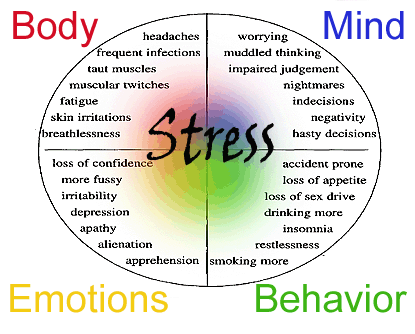
On one hand, the beautiful gift of anyone in your life taking care of you to help you live your life is incredibly special. There are not enough people out there who are willing to dedicate their lives to helping others. However, there is a cost associated for “You” the recipient of this care.
There are times when the caregiver or the caregivee can be very challenging individuals, which makes things extremely trying. Even if both parties are good humans and are doing their best, the human element with respect to emotions come into play at some point.
This is not just my opinion, again, I’ve spoken with hundreds of quadriplegics in similar situations to mine and those who are full-time care dependent wheelchair users as well. No matter who is taking care of you, and this often happens unintentionally (unless it doesn’t -that’s another issue!), the person taking care of someone brings in their emotional baggage into your home or your room, even if it is a family member at times.
Each morning you wake up sometimes you have to hold your breath for whatever mood “said” person is in when they’re coming to take care of you. If they are in a great mood then you are going to have a very smooth day, but if they are not, your day just got infinitely more complicated. You essentially become an emotional hostage with respect to other people’s moods.
People who are able-bodied have the luxury to leave your home or your room to go take care of themselves emotionally to get it together or have their own private meltdown moment. Many of us, full-time dependent wheelchair users, don’t often have this luxury. We need help. We become an emotional hostage to whatever mental state that person coming in to help us is in. If they are in a bad mood or having a rough time you are likely going to hear about it. Even if you don’t hear about it and they keep it to themselves, you’re going to feel it from an energy perspective.
Someone who is having a bad day or week or month will come into your home or room (again this applies even to family members with you all the time) and you can really feel their energy. This, in turn, dampens your own energy.
PSYCHIC VAMPIRES
I call energy wicking people in your life “psychic vampires.” They suck away your positive energy you have stored up for the morning when it has taken everything in you to sometimes just open your eyes to deal with all of your secondary complications, pain or paralysis.
This is a really challenging situation to be in if you are trying to utilize all of your mental coping techniques to make sure you have a positive day. You don’t get a break from other people. They are around all the time. They, however, can get a break from you.
It’s important to draw lines with respect to responsibilities and attitudes, but at the same time, there is a very different bond when someone is taking care of your physical body than just being an employee in your company. Learning about each other’s personal lives and their challenging days are going to seep in no matter what. No matter how many boundaries you draw, it’s going to happen. This is just life. These are human emotions. You can’t always control them.
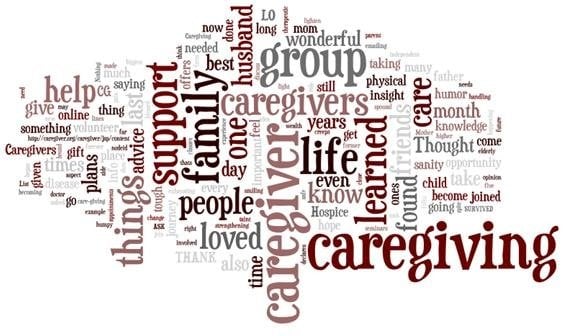
Especially if people have been in your life for years you get to know each other intimately. I work extremely hard at staying positive each and every morning no matter what, but when someone walks into my room to help me and they are struggling themselves they, oftentimes, don’t let it stay at home, but bring it into the house. There’s no blame. There’s no anger. There’s just exhaustion.
Exhaustion because while you are trying to be lighthearted or bubbly or positive and the other person is just not, this wears on your mental soul. I wish I could sugarcoat this and put a happy spin on it, but these are just some realities.
Where do we go from here?
There’s not a great answer. Personally, through various mental coping techniques and meditation, I try to keep a happy bubble in my mind even when I can feel the negative or sad or emotional energy from someone else. It’s hard. It’s really hard. However, what’s my alternative?
You certainly can’t control other people’s emotions and you would hope they would be able to keep theirs in check, but this is not often the case. So, one of the only alternatives is to be your own cheerleader. I cheer myself on each and every morning. Seriously!
I have these positive little mantras I say to myself before anyone walks into my room and try to stay in there in my own head. I’m not perfect at it. I sometimes get into a negative loop cycle in my head, but never show it outwardly. I just wait for the next day and hope it’s better. I’m a realist, but I do have hope too. I’m not religious, but do believe if you constantly keep putting out positive vibes into the universe, eventually, they will come back in the best of ways to you.
Now, but doesn’t always help in the interim while you’re in the thick of other people’s emotions, but I’m playing the long game in life. When you live with a disability you have to play the long game otherwise it can get dark pretty quickly.
It’s gotten dark for me before, but I remind myself to “check myself” each and every day to make sure I pull myself back into a mindset and a life that is bigger than me. I find things to do and causes to participate in that are larger than myself. This helps me tremendously to not feel sorry for myself and help those who are situations more challenging than my own.
We must find your own coping mechanisms because no one else is going to do it for you. You can hope and wish for compassion and empathy, but you might not always get it. This is why always say people with disabilities are some of the most tenacious, gracious, humble, kind, and creative problem solvers in the world – both personally and professionally!
Now that I think about it, I think most folks with significant disabilities with a merry-go-round of people caring for them would probably be excellent HR executives!


